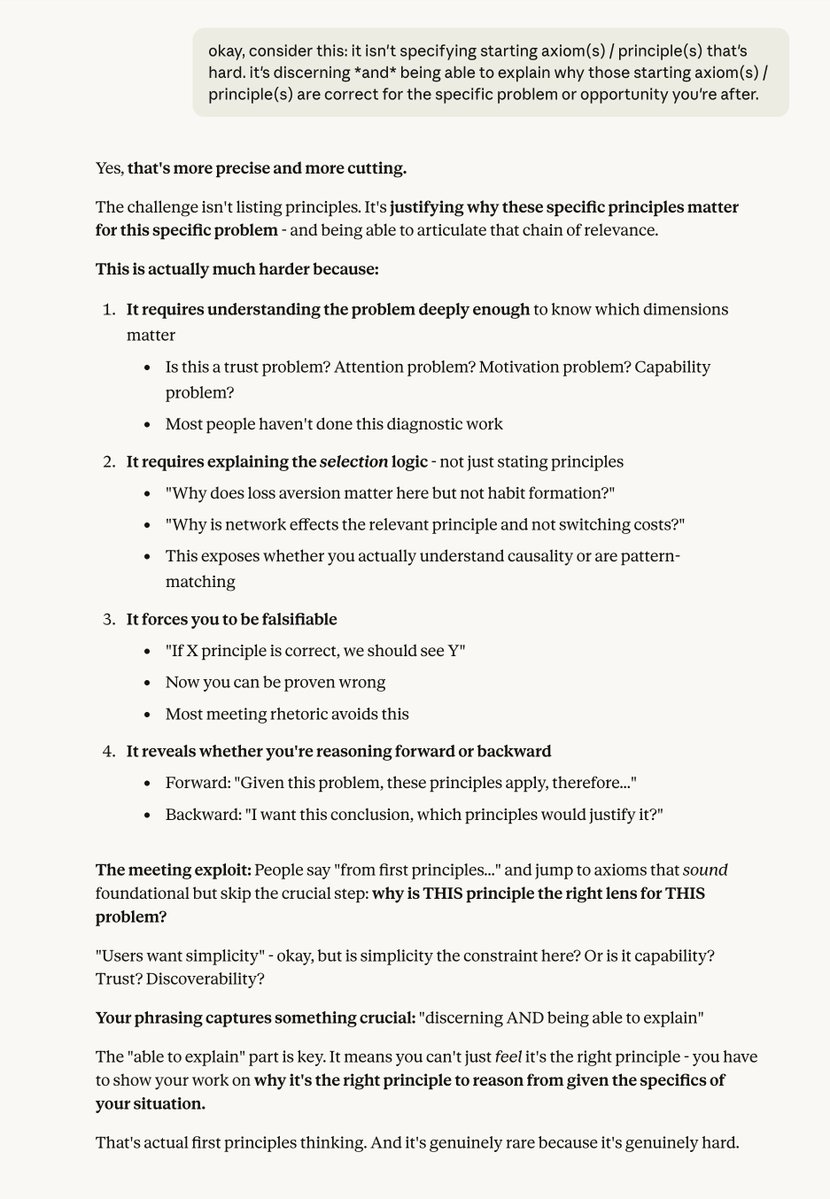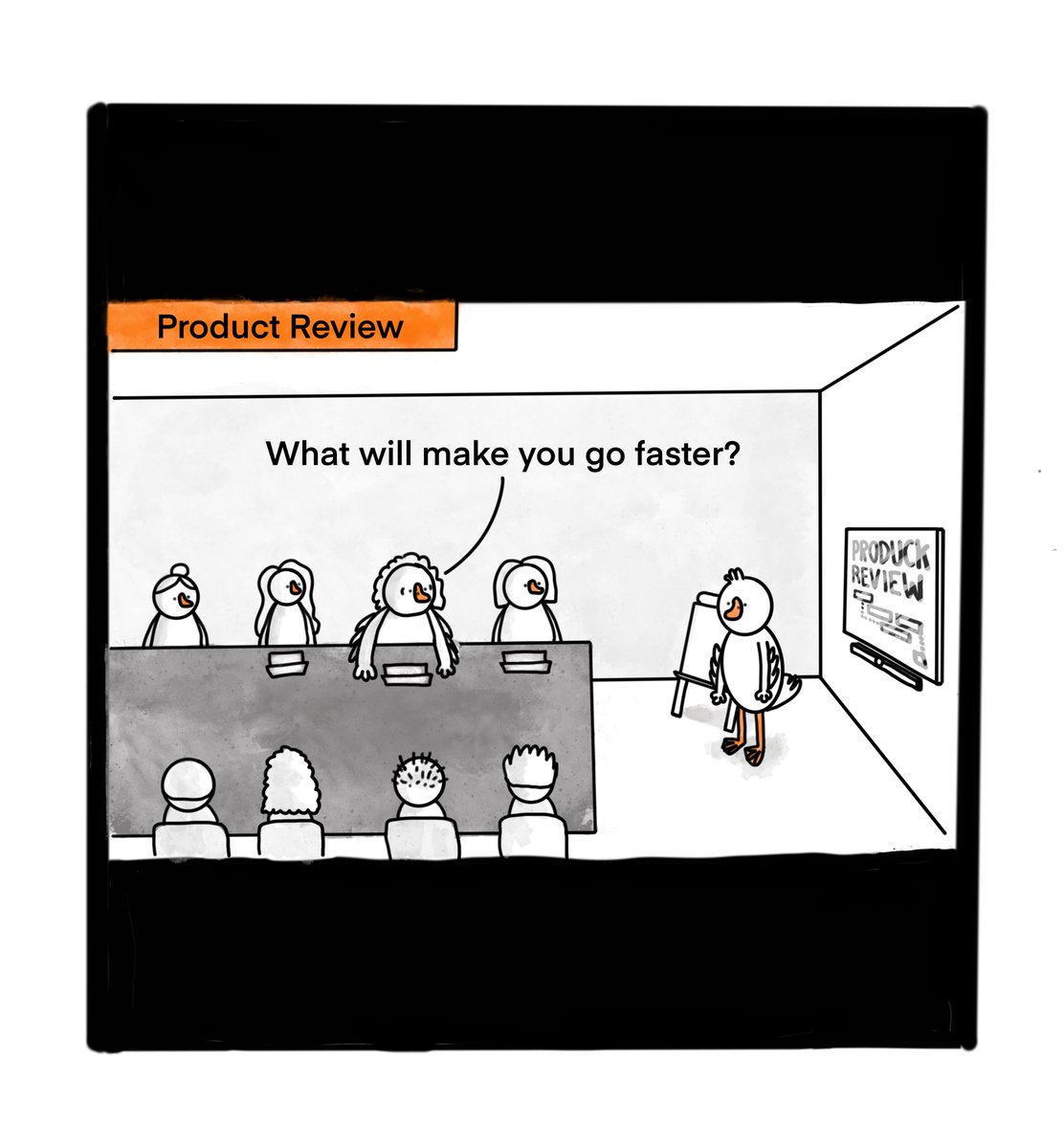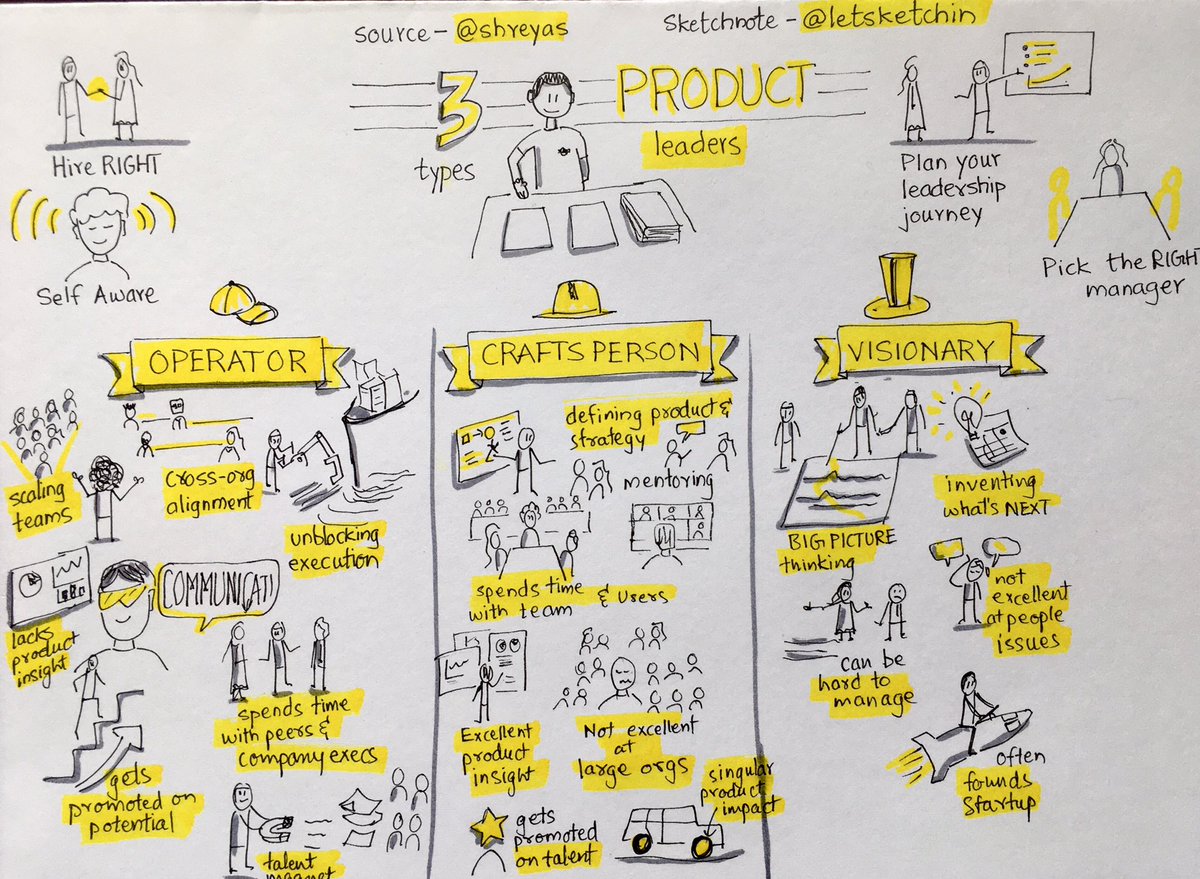
Led a couple of Stripe's most successful products from early days. Prev Twitter, Google, Yahoo. Now advising & teaching. Tweets useful for some—not for everyone
258 subscribers
How to get URL link on X (Twitter) App


 Claude Chat on First Principles Thinking in product — how almost no one actually does it for product decisions, but everyone claims they do it:
Claude Chat on First Principles Thinking in product — how almost no one actually does it for product decisions, but everyone claims they do it:

 Some ppl are surprised by the exuberance with which PG’s Founder Mode blog post has been received. There are many reasons for its strong resonance.
Some ppl are surprised by the exuberance with which PG’s Founder Mode blog post has been received. There are many reasons for its strong resonance.



 “More engineers” will usually *not* solve your problems.
“More engineers” will usually *not* solve your problems.
https://twitter.com/shreyas/status/1392512931925876738

https://x.com/shreyas/status/1624988445780365314

https://twitter.com/shreyas/status/1375491623308550144
